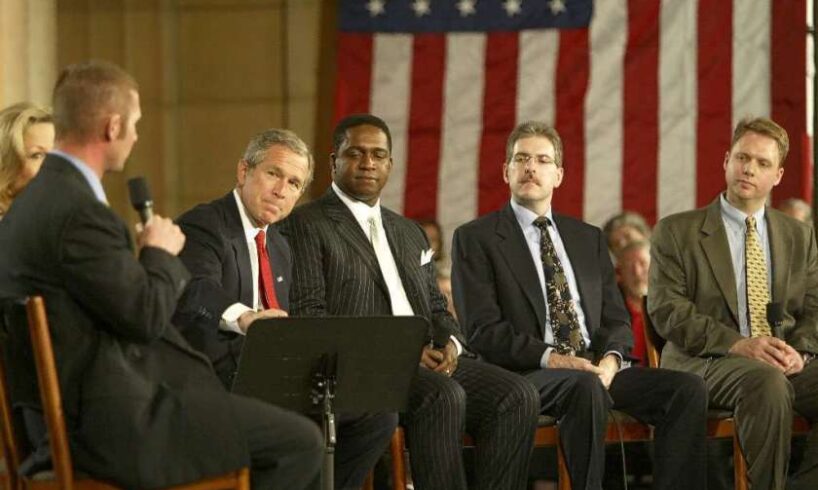
This article was originally published THE CITY
Bronx Councilmember Andrew Cohen was nominated for a judgeship this week by the borough’s Democratic machine — setting off a special-election scramble among five candidates eager to replace him.
Among the hopefuls is a longtime local politician’s son. But with the pandemic-driven disarray, a new ranked-choice voting system in play for the March contest and changing political winds that shifted with Rep. Alexandria Ocasio-Cortez and state Sen. Alessandra Biaggi’s upset victories in 2018, outcomes are hard to predict.
Cohen, who is term-limited in the Council, said he would start his new gig in January. The Democrat, who represents Bedford Park, Kingsbridge, Norwood, Riverdale, Wakefield, and Woodlawn, told The Riverdale Press Monday he had “been in the running for quite a few years” to become a judge.
Traditionally, low-turnout special elections advantage Democratic Party insiders and candidates with name recognition — a label that applies to Eric Dinowitz, a special education teacher, district leader and member of Bronx Community Board 8.
Dinowitz is the son of Bronx Assemblymember Jeff Dinowitz — who won his seat in a special election more than 25 years ago.
Also in the race to represent the 11th Council District are Jessica Haller, an entrepreneur; Abigail Martin, a social worker and Columbia University adjunct professor; former community board chairperson and lawyer Daniel Padernacht; and Dionel Then, a graduate student and former Council intern.
The March 2021 election will mark one of New York City’s first tests of ranked choice voting in a borough where once-entrenched establishment power has been upset by political newcomers.
Last month, Jamaal Bowman won a primary against longtime Rep. Eliot Engel (D-The Bronx/Westchester), another major disruption to politics-as-usual for Democrats.
A special election also will likely be held in a neighboring district, currently represented by Councilmember Ritchie Torres (D-The Bronx), who is expected to be declared the winner of June’s South Bronx Democratic Congressional primary.
Campaigning in a Changing District
The Cohen seat opens up in a district that looks a little different than it has in the past.
“The voting age citizens of the district are gradually but steadily getting less white and less Jewish, a little bit more African-American and Afro-Caribbean, and in particular more Latino, led by the growth of the Dominican community,” said John Mollenkopf, director of CUNY’s Center for Urban Research. “It is still a predominantly white district, however.”
Some of the candidates who spoke with THE CITY this week discussed the devastating impact of the coronavirus crisis on the district.
Unemployment — which has surged to nearly 25% of the borough’s workforce — and financial insecurity are pressing issues for residents of District 11, they said. Voters are also troubled by worry over safe school reopening and cuts to youth services.
“The problems were there beforehand,” said Padernacht, the first to officially enter the race, in 2018. “The pandemic exacerbated them.”
“We still faced a housing crisis beforehand, we still faced economic challenges beforehand,” he added. “There are many folks in our city who are underserved and are vulnerable populations that we can, essentially, serve better. COVID highlighted and exacerbated those problems, especially for the most vulnerable communities.”
Among the most vulnerable: seniors, who make up a sizable portion of the district.
“With COVID, in-person communication has become very difficult,” said Dinowitz, who has taught in city public schools for 13 years and is chair of the community board’s committee on aging. “So instead of knocking on doors, I did senior check-in calls and called seniors centers around the community. Some of them just wanted a conversation with someone. Others are dealing with food insecurity.”
‘I Want to Make a Difference’
Martin said that seeing existing inequities deepened by the pandemic pushed her to seek the seat, running with a focus on affordability and constituent services.
“COVID hit and it decimated The Bronx,” said Martin, who, as a social worker, has worked with clients navigating the juvenile and Family Court systems.
“It’s awful,” she added. “And we’ve got politicians that are talking about raising public transit [fares] and cutting services. We’ve lost some of the summer youth program, the Department of Education has lost funding — it’s infuriating, honestly.”
Then, formerly a City Council intern as well as a former employee at the city Department of Cultural Affairs, told THE CITY he has heard many of these same concerns from his neighbors.
He is hoping to bring fresh eyes to entrenched issues, he said.
“Until recently, with the blue wave with Congresswoman Ocasio-Cortez, it was very closed in and very dominated by big political parties, like the Bronx Democratic Party,” Then said.
“So, yeah, I’m in it,” he added. “And I’m young, I want to make a difference. I want to actually represent The Bronx, my neighborhood, my district and show that there’s different stakeholders, there’s different constituents that [have] concerns and need to be heard. Sometimes, depending on who’s in power, some voices get more credence than others.”
THE CITY is an independent, nonprofit news outlet dedicated to hard-hitting reporting that serves the people of New York.
This article was originally published THE CITY